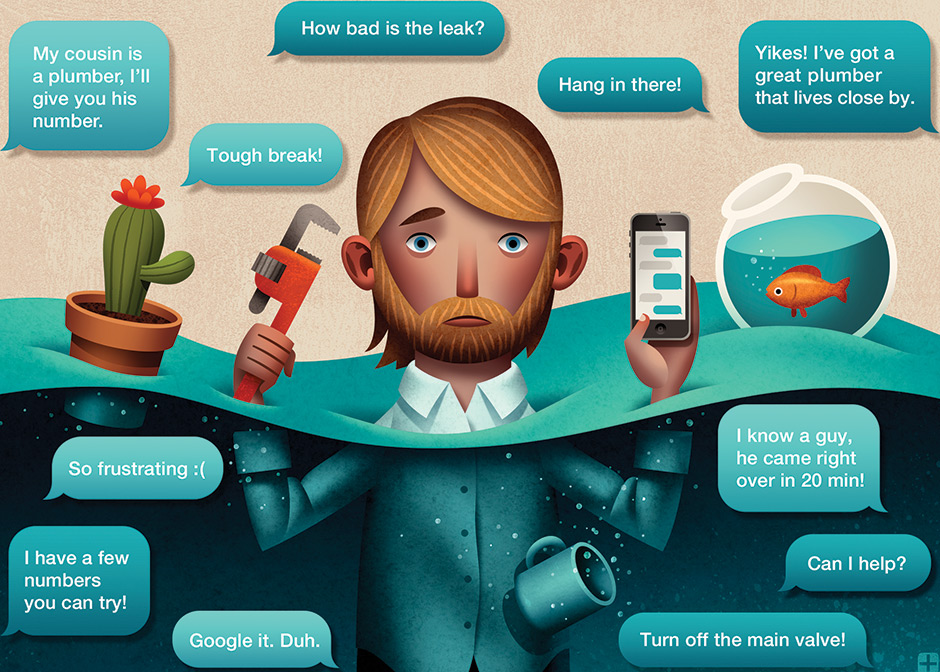My Crowdsourced Life

Illustration by Jon Reinfurt
It was, you have to admit, a pretty smart publicity grab.
Back in January, Mark Zuckerberg snapped a picture, posted it online, and posed a question to his readers: What kind of spider is this, and is it okay to let it keep living in my shower?
The Facebook founder wasn’t posting on his own site; he was on Jelly, a hip new app from Twitter co-founder Biz Stone that lets users upload photos so their social media contacts can answer questions about them. Nine minutes later, Zuckerberg got his answer from Kevin Thau, Jelly’s COO: I think it’s a Phidippus johnsoni. Probably want to relocate it out of the house. As backup, Thau included a Wiki link about Phidippus johnsoni — a terrifying jumping spider with a nasty bite. Not long after, Stone completed the loop with a tweet: “First life saved via Jelly!”
Welcome to research in the age of social media. Jelly’s raison d’être may be crowdsourcing, but you don’t have to download the app to tap into the collective brainpower of the masses — not if you have any other sort of social media account. At 31, I’m at the stage of life where I use my Facebook account mostly for birthday reminders and cat videos (fine, and maybe to find out if that cute woman I met has a boyfriend) — but I think I’m increasingly alone. So many of my friends in Philly use social media to outsource their problems that my various newsfeeds have more pleas for help than an episode of Dr. Phil.
My car horn stopped working — will it be expensive to fix? Does someone have a copy of Photoshop I can have? I want to start running. What’s the best couch-to-5K app? I don’t know what to wear tonight! (On that last one, the “help me” is clearly implied.)
A journalist friend of mine turns to her “friends” on Facebook regularly for stories she’s working on. “I don’t only learn about my topic,” she says, “but I figure out what people are interested in hearing about. It helps me shape my stories, too.” Another pal cops to crowdsourcing everything from mechanics to cold remedies, out of what he readily admits is sheer sloth.
The lazy friend has a point: Any reasonably connected human being can simply ask and then receive — and receive immediately, with zero effort. Crowdsourcing is about efficiency, really — about putting social media to work for you. But while the answers you get from that network of 500 of your nearest and dearest are fast and easy (and also probably better than the ones that come from the unwashed Internet masses on, say, Yahoo! Answers), that doesn’t mean the collective brainpower of the crowd is always right. Is it your transmission making that noise? Was that a Phidippus johnsoni? Does having so many answers at our fingertips actually make life easier and better? Or just … noisier?
I decide to find out — to spend a week crowdsourcing my decision-making, letting “friends” on Facebook and my Twitter followers guide my path.


